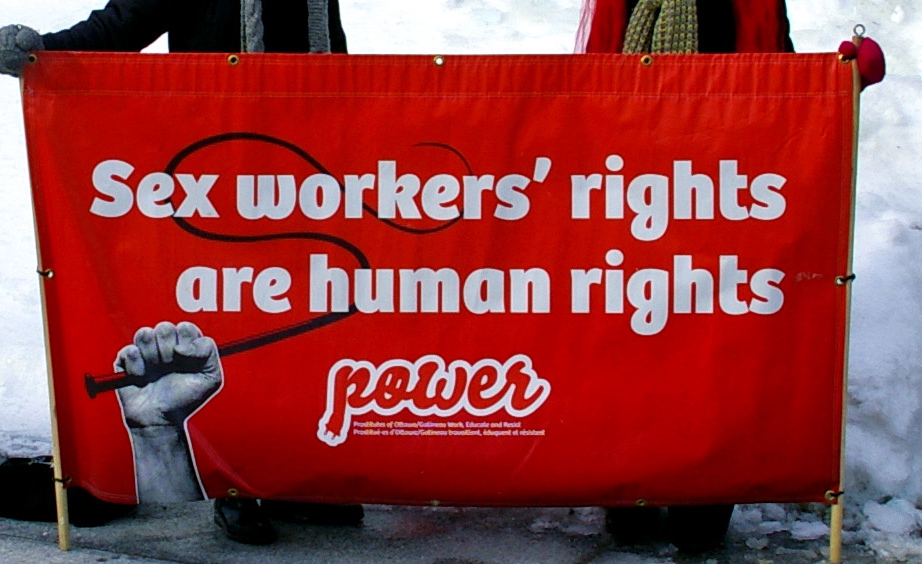This morning, the Supreme Court of Canada announced that it will hear the appeal of the case of Attorney General of Canada, et al. v. Terri Jean Bedford, et al. This is a really big deal – not surprising, but still a really big deal.
This decision is important for two reasons. First, the SCC grants “leave to appeal” (which means the right to have your case heard before Canada’s highest court) in cases that are of public or national importance. So, you can see why the Pivot team is thrilled that the SCC will hear this case involving fundamental rights for sex workers to safety and freedom from criminalization, which we feel is one of the most important and pressing social justice issues of our time.
Get Updates
Using the law as a catalyst for positive social change, Pivot Legal Society works to improve the lives of marginalized communities.
Second, this is a really important step because it was anticipated that this case would go all the way to Canada’s highest court. It would not be until the case reached this final stage that we would know the fate of three laws that criminalize sex work: s.210 (keeping common bawdy houses), s.212(1)(j) (living on the avails of prostitution) and s.213(1)(c) (communicating for the purpose of prostitution).
Now that the Court has given the go ahead, the process of preparing for the hearing begins. The government and the applicants (Bedford, Scott and Lebovitch) will prepare and file their legal arguments. It is likely that a broad array of groups will file applications for intervenor status, hoping to have a chance to make their views known about the validity or invalidity of the prostitution laws. It will be a very interesting to watch this case take shape over the coming months.
Pivot, PACE and Sex Workers United Against Violence Society will join together as a coalition, as we did at the Ontario Court of Appeal, to apply for intervenor status. Our purpose at the Court of Appeal was to bring a strong voice from the Downtown Eastside, making it very clear that for sex workers in this community, law reform is a matter of life and death. The laws are a major impediment to creating safety for many sex workers who face horrific violence while working on the street.
We will keep you posted as the hearing date approaches (which probably won’t be until the fall of 2013). Pivot will certainly be doing everything we can to support the courageous sex workers who are leading this litigation and assist them in advancing human rights for sex workers across the country.
- Katrina

PS. Here is some background information in case you want to know more about thecase.
Bedford, Lebovitch and Scott initiated this case in 2007, asking the court to strike down s.210 (keeping common bawdy houses), s.212(1)(j) (living on the avails of prostitution) and s.213(1)(c) (communicating for the purpose of prostitution) because those provisions violate sex workers’ constitutional right to liberty and safety. They also argued that the communicating law violates their right to freedom of expression.
In September 2010, Justice Himel of the Ontario Superior Court did just that, striking down all three provisions as violating the Charter of Rights and Freedoms. Justice Himel’s decision can be found here.
The decision was appealed by the federal government. In March of this year, the Court of Appeal rendered its decision, agreeing that the bawdy house and living on the avails provisions are unconstitutional, but reversed Justice Himel’s decision on the communication law. The Court of Appeal decision is here.
Following the Court of Appeal’s decision, the federal government filed an application for leave to the SCC, stating that the Court of Appeal erred in ruling that the bawdy house provision and living on the avails provision are unconstitutional.
Bedford, Lebovitch and Scott filed a cross-appeal, requesting that the SCC review the Court of Appeal’s ruling on the communication law, as well as the Court’s decision to remedy the unconstitutionality of the living on the avails provision by limiting its application to “circumstances of exploitation.”
On October 25, 2012, the SCC granted leave to appeal and cross-appeal, which means the Court will adjudicate the issues raised by the federal government and the issues raised by Bedford, Lebovitch and Scott. Once the SCC renders its decision, that is the final word and that ruling will determine the fate of the three provisions being challenged in this litigation.


